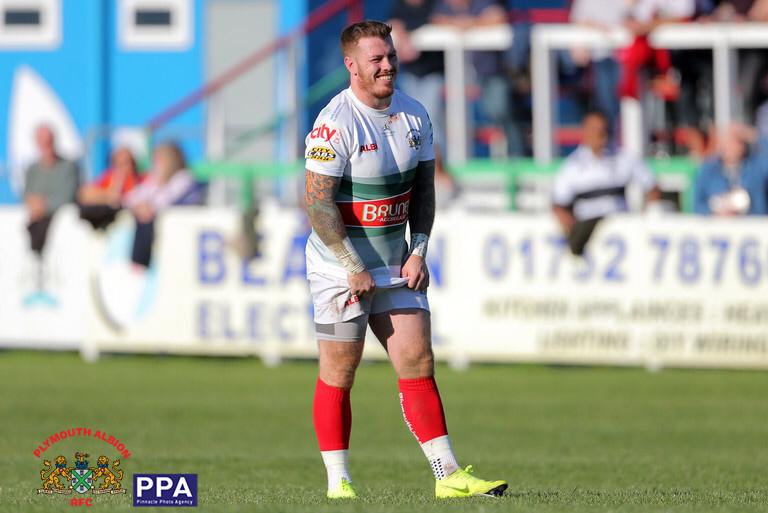Q&A with Dan Mugford
Return2Play spoke with Plymouth fly-half Rugby Dan Mugford. Having suffered with concussion we spoke to Dan about his experience with the injury throughout his career.
What was the highlight of your school sporting career?
Probably the chance to represent Exeter Chiefs Academy for the first time!
When you were at school who did you look up to the most, who inspired you?
I always obviously looked up to the big stars like Jonny Wilkinson and Matt Giteau. But someone that inspired me closer to home was a teacher in my 6th form Tony Roque, ex England 7’s and Saracens player. He showed me what work ethic really was and drove me each day to get better at the little things.
Who has been your most influential coach?
For me Martin Haag without doubt. More mentally than anything else. Each coach has their own technical things they can bring to your game. But Haagy knew how I ticked, he knew how to get the best out of me, even when I potentially didn’t.
Mental strength must play a huge part during an injury or concussion, do you have any tips for people coping with this?
I think I try to just keep things in perspective. You have to take the time to rehabilitate it and make sure its right because whilst we all miss the time on the field and that’s what we play for, if you deal with it wrong then you might well cut your career or enjoyment short. At the end of the day it is a game we play because we enjoy, so I try to find other things I enjoy outside of it to keep me cope.
What do you find is the hardest part about being injured?
I think for me it’s the feeling of being out of control. When you’re playing you have control of what you do on the field. When you’re sat watching, you want to be able to help your team, your friends to succeed. Outside of match day it’s probably the feeling of being slightly on the outside. Often injured players have their own sessions away from the team and you do miss out on things naturally so sometimes it can feel like you’re a little left out.
Has being injured given you more time to explore other interests, potentially things that you would like to do when you retire from professional sport?
I haven’t been the best with this because my sole focus was always to just get back fit as soon as possible. However as I’ve matured, I’ve been better at putting things into perspective and I got to the stage where I realised rugby wasn’t forever. I started to have conversations with people to see what might be out there and have since taken on a new role in marketing and sales.
Can you talk us through a typical daily routine when you’ve suffered an injury?
It differs at every club. But you’re often first in and last out, with gaps in between where the s&c’s and physios are working with the guys who are still fit enough to play.
From transitioning into professional sport what differences have you noticed in how injuries and concussions are managed?
This is one I find quite hard to answer. Certain clubs have looked after me very very well and given me everything within their power to make sure I was ok. Others maybe not so much.
Between school, club and academies do you feel that you played too much sport and if so, did this contribute to any injuries?
I don’t feel that was ever an issue injury wise for me. Maybe I could have been helped to spend more time on movement mechanics rather than lifting weights but I don’t think the actual playing was an issue.
Concussion is a huge talking point at the moment, and many are being put off playing sports like rugby, what is your opinion on the matter going forward?
Look concussion is a very real and serious problem. Would I stop playing rugby now because I know the risks? No chance! Rugby can give you so much! Friends for life, values, job opportunities plus much more. Yes there’s risk, but there’s risk in everything we do in life. For me the opportunity, and the happiness it brings makes it worth that small risk.
Having heard what Return2Play offer, and going on your own experiences, do you feel that R2P is something that will help grassroots sports become safer and managed better?
Yes! No doubt about it. As I talked about in the last question there is a risk, but the risk increases significantly if things aren’t dealt with and managed in the right way. R2P will help cut that risk.
Finally, if you could tell your younger self anything what would it be?
Perspective and finding your why. For a long time I didn’t have either, and I think at times it led to bad decisions and a lot of mental struggles. When you have perspective you find gratitude and add that to the why you do what you do and you have a fantastic platform to build whatever it is you want to on.
Click here to read Dan Mugford’s first in the series of blog posts.

